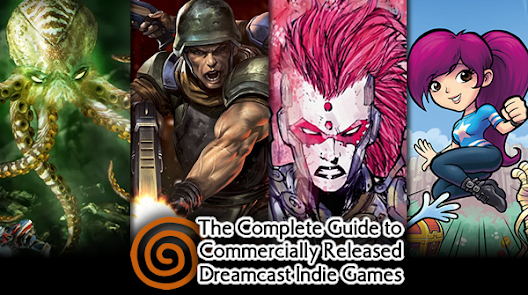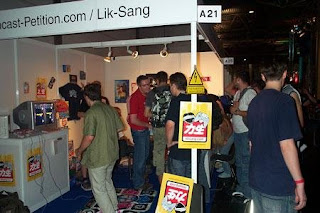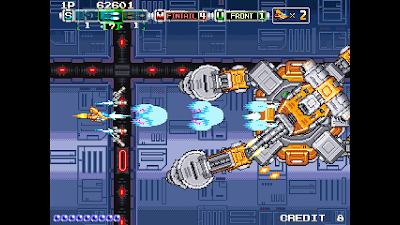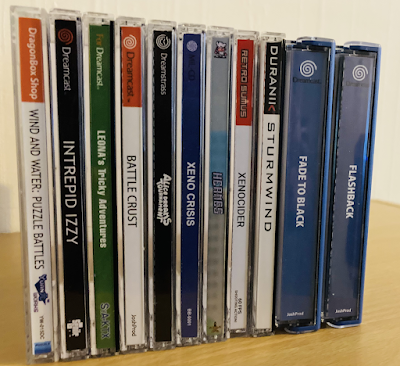When Sega pulled the plug on the Dreamcast in 2001, few would have predicted that our beloved little white box would still be pushing out new titles 20 years later. Flicking through the pages of the multitude of gaming magazines that were vying for market share at the time, readers were presented with a journalistic consensus that the Dreamcast was well and truly dead (note: for younger members of the audience, magazines were bounded sheets of paper with writing and artwork printed on them).
Of course, by industry standards, this assessment was bang on the money. The gaming reporters may well have known that a trickle of official releases would continue to see the light of day for a few more years, or had an inkling that a sizeable portion of the Dreamcast’s enthusiastic fanbase would continue to support homebrew projects, some of which could conceivably be released in physical form on a small scale. In the terms of reference that mattered to the industry and the wider public though (revenue, profit, audience size), the writing had already been on the wall for some time.
 |
| Where it all began... |
Although by these standards the Dreamcast's new releases are still undoubtedly small fry, the commercial Dreamcast indie scene has been through an astounding boom in recent years; one which is becoming hard to ignore. The tongue-in-cheek opinion shared amongst Dreamcast fanatics for many years that "the Dreamcast is a current gen console" is getting less and less absurd by the day. What began with the release of Cryptic Allusion’s Feet of Fury in 2003 (more info here) has snowballed to a point where 14 indie games were released in 2021. Furthermore, there are as many as 30 Dreamcast games forecast for release on a commercial basis in 2022 and beyond - a figure that is edging close to the 50 or so officially licenced releases seen in Europe in 2001, and which far outstrips the 9 released in 2002.
Of course, the rocketing quantity of releases doesn’t single-handedly uphold the claim that we’re in a “golden age” for the Dreamcast indie scene, but there are many other signs that accompany this trend. For one, the variety of games available is wider than ever, putting to rest the persistent trope that all the Dreamcast indie scene has to offer is shooters (which to be fair, had some validity in the mid to late noughties). Everything from platformers, fighters, puzzlers, RPGs, racers, and visual novels are finding a home on a professionally printed Dreamcast-compatible MIL-CD these days. Furthermore, there has been a diversification of contributors who are throwing their hats into the ring. Longstanding Dreamcast developers with a mountain of credibility stored up, such as Senile Team, are thankfully still here, but they have also been joined by a new wave of developers and publishers that are rapidly earning their stripes, including the likes of PixelHeart/JoshProd, LowTek Games, RetroSumus, The Bit Station, and WAVE Game Studios to name but a few.
What really adds weight to the hypothesis that the Dreamcast indie scene is entering a golden age though is the quality of many of the games - something which is undeniably more subjective and harder to pin down, but which will be recognised by many. Throughout the lifespan of the commercial Dreamcast indie scene there have always been standout titles, such as Wind & Water Puzzle Battles (2008) or Sturmwind (2013), which drew worthy praise at the time. Dreamcast enthusiasts would often wait in anticipation for years at a time for these gems; games that had clearly benefitted from the great care and attention to detail of their developers. Yet in 2020 and 2021 we were spoiled rotten with the release of three extraordinarily good titles in Intrepid Izzy, Xenocider and Xeno Crisis. These have all been extensively reviewed elsewhere too, so I won’t pour out my adoration here. Suffice it to say that they each set a high standard which others should be aiming for.
 |
| Three of the recent 'big' indie releases on Dreamcast |
So, what exactly is driving this boom? Through the highly scientific method of poking around the internet, chatting with fellow devout Dreamcast fans, and mulling it over whilst munching on Hula Hoops, here's "what I reckon."
First and foremost, there is a longstanding healthy demand for commercial indie releases. Folks are willing to part with their cold hard cash for these games, and fundamentally that is what makes it viable for them to be released, especially in a physical format. Many indie games that see the light of day in a commercial form on the DC are undoubtedly labours of love and have had countless hours of voluntary or underpaid labour poured into them. Yet, however much these development costs can be kept in check, and no matter how much cheaper printing a CD is compared to producing another medium (such as a cartridge), it still requires funding, and so a reasonable level of demand is essential.
Sales vary heavily from game to game, but it isn’t unusual to hear of indie Dreamcast releases selling over a thousand units, while those that sell well have the capability of reaching far beyond this over the course of their shelf life. For example, we know that Intrepid Izzy rapidly sold out its initial 700 copy print run within weeks of its release date, while the numbers shown on the PixelHeart website imply that a game such as Arcade Racing Legends has sold 2,500 copies of its PAL variation alone to-date. To put this into perspective, Radilgy, one of few final officially licensed Dreamcast games, was purported to have a print run of just 4,000 copies. When you add highly priced collectors’ editions into the mix - something that a section of the Dreamcast scene’s sizeable ‘adult-with-disposable-income’ demographic keenly buy into - then breaking even is a realistic, though not guaranteed, goal.
 |
| Arcade Racing Legends |
On the other side of the coin, there are many factors that help facilitate the supply of games. Front and centre is the fact that Sega have thus far been very liberal (touch wood!) in their stance on the Dreamcast indie scene. Perhaps there is just no valid business rationale for them to dedicate resources to making things difficult (as opposed to genuine goodwill), but a laissez-faire attitude from multinational corporations under circumstances such as these is not always a given. Pair this with the Dreamcast’s capability to play games pressed to regular CDs without modification, and the relative ease of developing games for the console when compared to other platforms (often cited by developers in their DCJY interviews), and we have the foundations of the whole commercial indie scene.











.jpg)
.jpg)









































